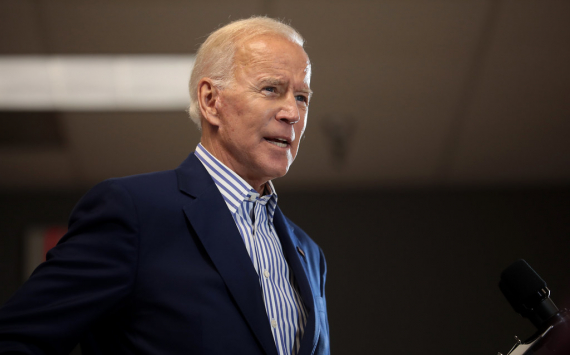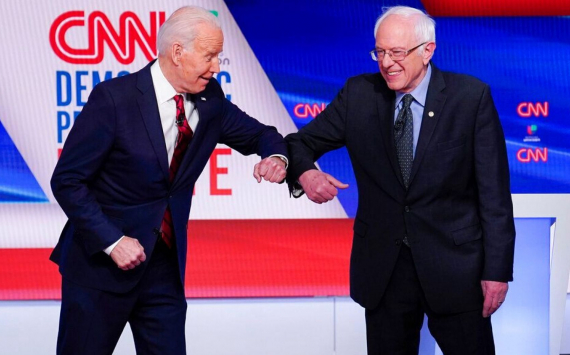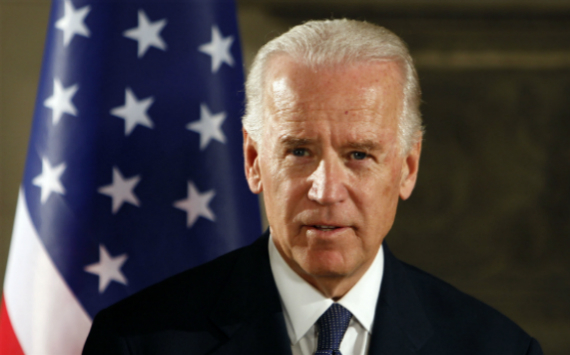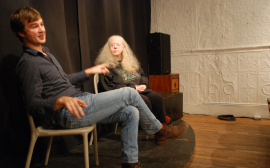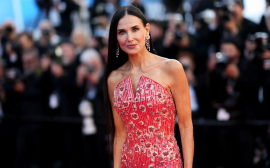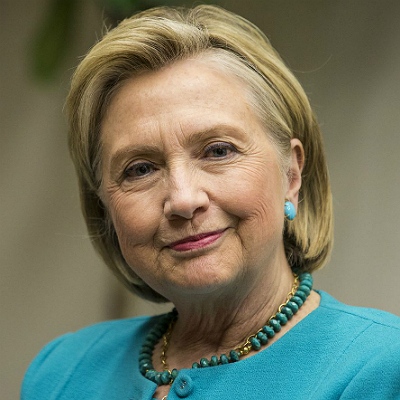
CLINTON
Hillary
Diane
Rodham
67th United States Secretary of State
Organization: White House
Date of Birth: 26 October 1947
person_view.holiday: Financial Crime Day
Age: 77 years old
Place of Birth: Chicago, Illinois, U.S.
Height: 162
Weight: 70
Zodiac sign: Scorpio
Activity: The American politician, diplomat, lawyer, writer, and public speaker. She served as the 67th United States Secretary of State, as United States senator from New York, and as First Lady of the United States.
Profession: Politician
Biography
Hillary Clinton, in full Hillary Rodham Clinton, née Hillary Diane Rodham, (born October 26, 1947, Chicago, Illinois, U.S.), American lawyer and politician who served as a U.S. senator (2001–09) and secretary of state (2009–13) in the administration of Pres. Barack Obama. She had served as first lady (1993–2001) during the administration of her husband, Bill Clinton, 42nd president of the United States. As the Democratic Party’s nominee for president in 2016, she became the first woman to top the presidential ticket of a major party in the United States.
Early Life
The first president’s wife born after World War II, Hillary was the eldest child of Hugh and Dorothy Rodham. She grew up in Park Ridge, Illinois, a Chicago suburb, where her father’s textile business provided the family with a comfortable income; her parents’ emphasis on hard work and academic excellence set high standards.
A student leader in public schools, she was active in youth programs at the First United Methodist Church. Although she later became associated with liberal causes, during this time she adhered to the Republican Party of her parents. She campaigned for Republican presidential candidate Barry Goldwater in 1964 and chaired the local chapter of the Young Republicans. A year later, after she enrolled at Wellesley College, her political views began to change. Influenced by the assassinations of Malcolm X, Robert F. Kennedy, and Martin Luther King, Jr., she joined the Democratic Party and volunteered in the presidential campaign of antiwar candidate Eugene McCarthy.
After her graduation from Wellesley in 1969, Hillary entered Yale Law School, where she came under the influence of Yale alumna Marian Wright Edelman, a lawyer and children’s rights advocate. Through her work with Edelman, she developed a strong interest in family law and issues affecting children.
Lawyer And First Lady Of Arkansas
Although Hillary met Bill Clinton at Yale, they took separate paths after graduation in 1973. He returned to his native Arkansas, and she worked with Edelman in Massachusetts for the Children’s Defense Fund. In 1974 Hillary participated in the Watergate inquiry into the possible impeachment of Pres. Richard M. Nixon. When her assignment ended with Nixon’s resignation in August 1974, she made what some people consider the crucial decision of her life—she moved to Arkansas. She taught at the University of Arkansas School of Law, and, following her marriage to Bill Clinton on October 11, 1975, she joined the prominent Rose Law Firm in Little Rock, Arkansas, where she later became a partner.
After Bill was elected governor of Arkansas in 1978, she continued to pursue her career and retained her maiden name (until 1982), bringing considerable criticism from voters who felt that her failure to change her name indicated a lack of commitment to her husband. Their only child, Chelsea Victoria, was born in 1980.
Throughout Bill’s tenure as governor (1979–81, 1983–92), Hillary worked on programs that aided children and the disadvantaged; she also maintained a successful law practice. She served on the boards of several high-profile corporations and was twice named one of the nation’s 100 most influential lawyers (1988, 1991) by the National Law Journal. She also served as chair of the Arkansas Education Standards Committee and founded the Arkansas Advocates for Children and Families. She was named Arkansas Woman of the Year in 1983 and Arkansas Young Mother of the Year in 1984.
First Lady Of The United States
In Bill’s 1992 presidential campaign, Hillary played a crucial role by greeting voters, giving speeches, and serving as one of her husband’s chief advisers. Her appearance with him on the television news program 60 Minutes in January 1992 made her name a household word. Responding to questions about Bill’s alleged 12-year sexual relationship with an Arkansas woman, Gennifer Flowers, Bill and Hillary discussed their marital problems, and Hillary told voters to judge her husband by his record—adding that, if they did not like what they saw, then, “heck, don’t vote for him.”
With a professional career unequaled by any previous presidential candidate’s wife, Hillary was heavily scrutinized. Conservatives complained that she had her own agenda, because she had worked for some liberal causes. During one campaign stop, she defended herself from such criticism by asserting that she could have “stayed home and baked cookies.” This impromptu remark was picked up by the press and used by her critics as evidence of her lack of respect for women who are full-time homemakers.
Some of Hillary’s financial dealings raised suspicions of impropriety and led to major investigations after she became first lady. Her investment in Whitewater, a real estate development in Arkansas, and her commodities trading in 1978–79—through which she reportedly turned a $1,000 investment into $100,000 in a few months—came under close scrutiny.
During the 1992 campaign, Bill Clinton sometimes spoke of a “twofer” (“two for the price of one”) presidency, implying that Hillary would play an important role in his administration. Early indications from the Clinton White House supported this interpretation. She appointed an experienced staff and set up her own office in the West Wing, an unprecedented move. Her husband appointed her to head the Task Force on National Health Care, a centrepiece of his legislative agenda. She encountered sharp criticism when she closed the sessions of the task force to the public, and doctors and other health care professionals objected that she was not a “government official” and had no right to bar them from the proceedings. An appeals court later supported her stand, ruling that presidents’ wives have a long-standing “tradition of public service” acting “as advisers and personal representatives of their husbands.” To promote the findings of the task force, she appeared before five congressional committees and received considerable and mostly favourable press coverage for her expertise on the subject. But Congress ultimately rejected the task force’s recommendations, and her role in the health care debate galvanized conservatives and helped Republicans recapture Congress in the 1994 elections.
Hillary was criticized on other matters as well, including her role in the firing of seven staff members from the White House travel office (“Travelgate”) and her involvement in legal maneuvering by the White House during the Whitewater investigation. As the 1996 election approached, she was less visible and played a more traditional role as first lady. Her first book, It Takes a Village: And Other Lessons Children Teach Us (1996), described her views on child rearing and prompted accolades from supporters and stark criticism from her opponents.
Revelations about President Clinton’s affair with White House intern Monica Lewinsky brought the first lady back into the spotlight in a complex way. She stood faithfully by her husband during the scandal—in which her husband first denied and then admitted to having had a sexual relationship with Lewinsky—and throughout his ensuing impeachment and trial in the Senate.
In 1999 Hillary Rodham Clinton made history of a different sort when she launched her candidacy for the U.S. Senate seat from New York being vacated by Daniel Patrick Moynihan. To meet the state’s residency requirement, she moved out of Washington, D.C., on January 5, 2000, to a house that she and the president purchased in Chappaqua, New York. After a bitter campaign, she defeated Republican Rick Lazio by a substantial margin to become the first first lady to win elective office. Although often a subject of controversy, Hillary showed that the ceremonial parts of the first lady’s job could be merged with a strong role in public policy and that the clout of the first lady could be converted into a personal political power base.
Senate And 2008 Presidential Run
Sworn into office on January 3, 2001, Senator Clinton continued to push for health care reform, and she remained an advocate for children. She served on several senatorial committees, including the Committee for Armed Services. Following the September 11 attacks in 2001, she supported the U.S.-led invasion of Afghanistan but grew highly critical of Pres. George W. Bush’s handling of the Iraq War. In 2003 Hillary’s much-anticipated memoir of her White House years, Living History, was published and set sales records; she had received an advance of about $8 million for the book. In 2006 she was easily reelected to the Senate.
The following year Hillary announced that she would seek the Democratic Party’s presidential nomination for 2008. She began the primary season as the front-runner for the nomination but placed a disappointing third in the first contest, the Iowa caucus, on January 3, 2008. Her campaign quickly rebounded, and she won the New Hampshire primary five days later. On Super Tuesday, February 5, Clinton won important states such as California, Massachusetts, and New York, but she failed to gain a significant lead over Barack Obama in the number of pledged convention delegates. Obama won 11 consecutive states following Super Tuesday to take over the delegate lead and become the new favourite for the nomination, but Clinton rebounded in early March with key victories in Ohio and Texas, and in April she added to her momentum by winning the Pennsylvania primary. However, Clinton’s narrow victory in Indiana and substantial loss in North Carolina in early May severely limited the possibility of her garnering enough delegates to overtake Obama before the final primaries in June. On June 3, following the final primaries in Montana and South Dakota, Obama passed the delegate threshold and became the presumptive Democratic nominee. He officially secured the party’s nomination on August 27 at the Democratic National Convention in Denver and went on to win the general election on November 4.
Secretary Of State And 2016 Presidential Candidate
In December 2008 Obama selected Clinton to serve as secretary of state, and she was easily confirmed by the Senate in January 2009. Clinton’s tenure as secretary of state was widely praised for improving U.S. foreign relationships. She resigned from her post in 2013 and was replaced by former Massachusetts senator John Kerry. Hard Choices, a memoir of her experiences as secretary of state, was published in 2014. The following year it was revealed that she had used a private e-mail address and server while secretary of state, which raised concerns over both security and government transparency. The FBI eventually launched an investigation into the matter.
In April 2015 Clinton announced that she was entering the U.S. presidential election race of 2016, and she immediately became the favourite to win the Democratic nomination. However, her campaign faced an unexpected challenge from Bernie Sanders, a senator who was a self-described “democratic socialist.” Clinton, seen as a political insider, initially struggled to counter Sanders’s populist policies, which she criticized as unrealistic. Instead, she advocated a “sensible agenda,” which was based on traditional Democratic goals, notably tax increases on the wealthy, an increase to the minimum wage, and immigration reform. In addition, she supported stricter Wall Street regulations, though her past connections to the banking and investment industry—notably in the form of corporate speeches and campaign donations—drew scrutiny. As a former secretary of state, Clinton highlighted her foreign-policy experience, and she backed a strong U.S. presence overseas.
Although Clinton entered the primary election season in February 2016 with a number of questions surrounding her campaign—including the ongoing e-mail scandal—by the following month she had emerged as the clear front-runner. On June 7 Clinton claimed the Democratic nomination following wins in several states, notably California. The following month the FBI concluded its e-mail probe, with Director James Comey recommending that no charges be brought against Clinton, though he stated that she had been “extremely careless” in her handling of classified material. The decision drew criticism from her opponents as Clinton looked to move past the scandal. On July 12 she was officially endorsed by Sanders.
Later that month Clinton selected Sen. Tim Kaine as her vice presidential running mate. On July 26, 2016, at the Democratic National Convention, she was named the party’s nominee. Clinton’s Republican opponent was Donald Trump, a businessman whose outsider status and political incorrectness had helped him appeal to previously underappreciated voters and secure his party’s nomination. As the two faced off, the campaign became increasingly negative and highly acrimonious. Trump accused Clinton of being “crooked” and stated that she should be jailed over the e-mail scandal. In addition, she faced quid pro quo allegations in connection with her husband’s charitable organization, the Clinton Foundation. Notably, she was accused of granting special treatment to donors while serving as secretary of state. She denied the various charges, but many polls indicated that the majority of Americans found her untrustworthy.
Clinton countered by raising doubts about Trump’s temperament and political inexperience, portraying her lengthy career in public service as an asset. She also questioned his business dealings and tax returns—which he refused to release, in contrast to the standard practice for major-party presidential candidates since the 1970s. However, she struck a particular chord when she repeatedly challenged his treatment of women, notably highlighting a series of negative comments he had made. Then in October 2016 a hot-mic video from 2005 surfaced in which Trump stated that “when you’re a star…you can do anything,” including grabbing a woman’s genitals. He dismissed it as “locker room talk,” but a series of women subsequently accused him of past sexual assaults. Although he denied the allegations, support for Clinton increased in the following weeks, particularly among women voters, a demographic with which Trump struggled.
As election day neared, many polls showed Clinton with a sizable lead, and she appeared to be making inroads into traditionally Republican states. Those polls apparently had failed to capture the support enjoyed by Trump in several key Midwestern states, however, and on November 8, 2016, Clinton was defeated in her bid for the presidency; although she won the popular vote by more than 2.8 million, she lost in the electoral college, 227 to 304. In What Happened (2017), she wrote candidly about the election and offered reasons why she lost. In May 2017 she launched Onward Together, a political group that aimed to fund and support progressive causes. Two years later she wrote (with her daughter, Chelsea) The Book of Gutsy Women: Favorite Stories of Courage and Resilience. The four-part documentary Hillary (2020) chronicles Clinton’s life and career.
Mentions in the news
Mentioned together
Born in one day
person_view.holiday: Financial Crime Day
(Pig) .
Horoscope Scorpio: horoscope for today, horoscope for tomorrow, horoscope for week, horoscope for month, horoscope for year.





